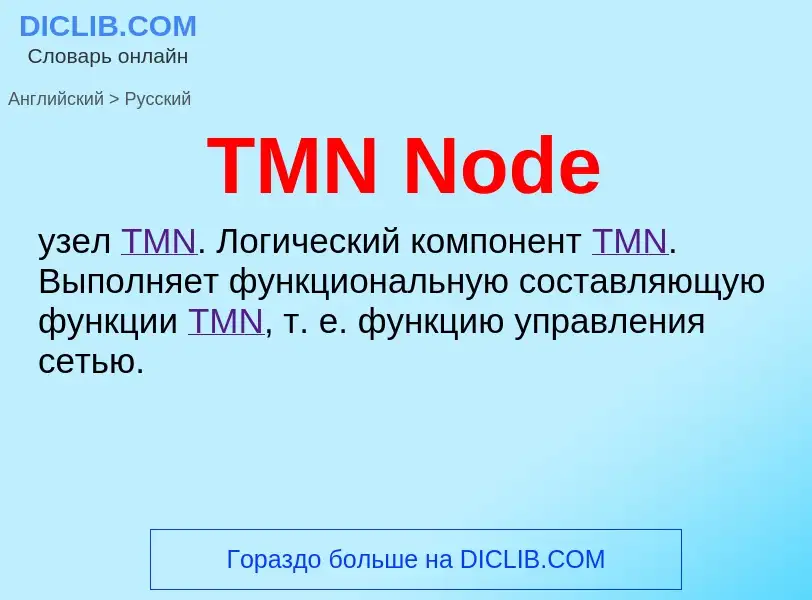Translation and analysis of words by ChatGPT artificial intelligence
On this page you can get a detailed analysis of a word or phrase, produced by the best artificial intelligence technology to date:
- how the word is used
- frequency of use
- it is used more often in oral or written speech
- word translation options
- usage examples (several phrases with translation)
- etymology
TMN Node - translation to English
Definition
Wikipedia
The Telecommunications Management Network is a protocol model defined by ITU-T for managing open systems in a communications network. It is part of the ITU-T Recommendation series M.3000 and is based on the OSI management specifications in ITU-T Recommendation series X.700.
TMN provides a framework for achieving interconnectivity and communication across heterogeneous operations system and telecommunication networks. To achieve this, TMN defines a set of interface points for elements which perform the actual communications processing (such as a call processing switch) to be accessed by elements, such as management workstations, to monitor and control them. The standard interface allows elements from different manufacturers to be incorporated into a network under a single management control.
For communication between Operations Systems and NEs (Network Elements), it uses the Common management information protocol (CMIP) or Mediation devices when it uses Q3 interface.
The TMN layered organization is used as fundamental basis for the management software of ISDN, B-ISDN, ATM, SDH/SONET and GSM networks. It is not as commonly used for purely packet-switched data networks.
Modern telecom networks offer automated management functions and are run by operations support system (OSS) software. These manage modern telecom networks and provide the data that is needed in the day-to-day running of a telecom network. OSS software is also responsible for issuing commands to the network infrastructure to activate new service offerings, commence services for new customers, and detect and correct network faults.

